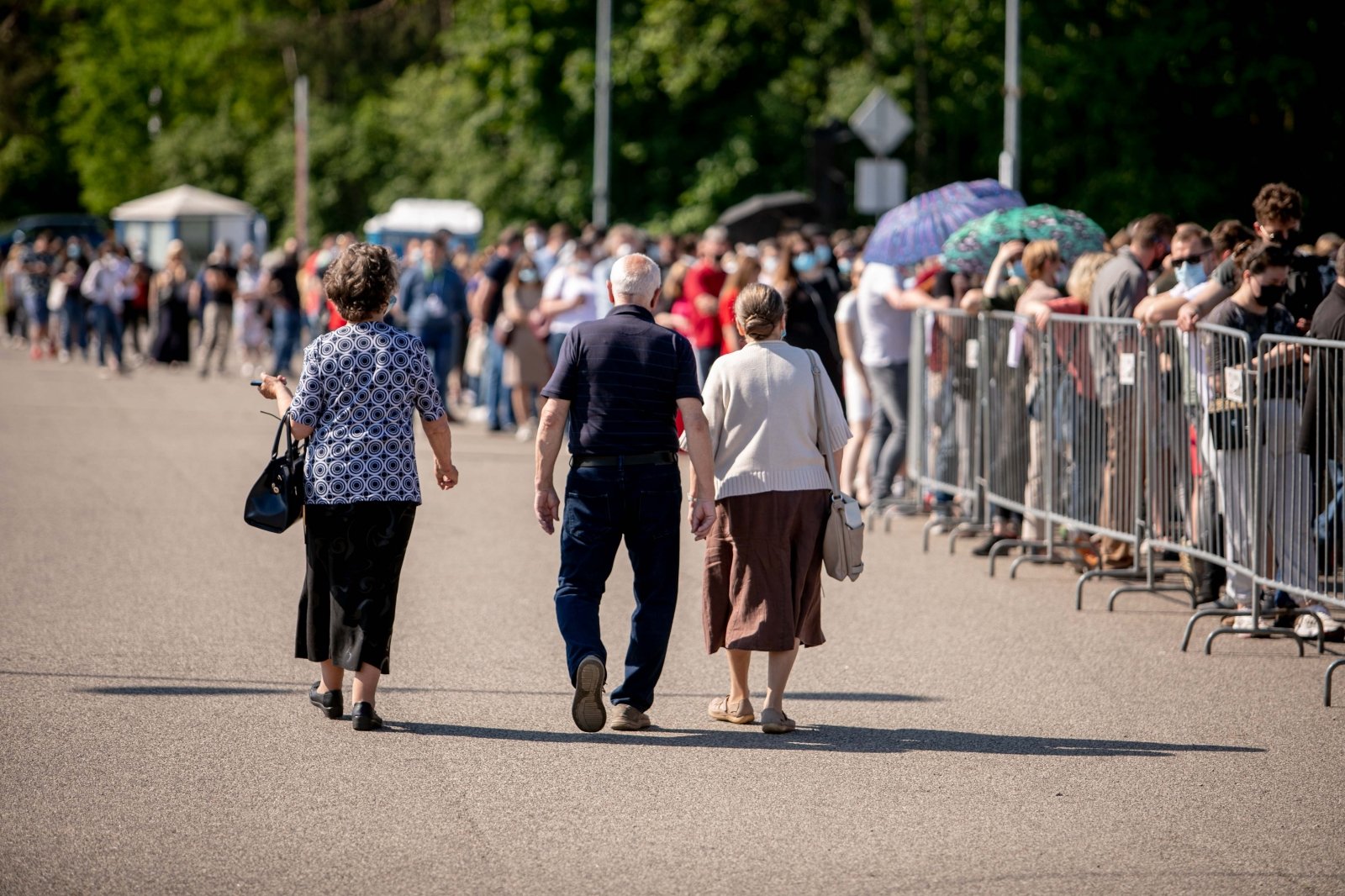At that time, the current situation in Lithuania, despite the fact that isolated cases of the “delta” variety have been recorded in the country, is gratifying.
“The number of cases, the proportion of positive tests and the number of hospitals are all falling. We are now in a controlled stage of the epidemic, which is very gratifying to see. We are moving fast towards Scenario A, ”said the data scientist on Delfi rytas Vaidotas Zemlys-Balevičius.
The alarming news is that vaccination activity is falling.
“According to how many people were vaccinated with the first dose, if we compare the last three weeks, it has dropped by about half. The total dose intake is comparable, which means that people are revaccinated. But there are problems with that first dose. It is not possible to single out one specific age group, there is simply a general decrease, ”said V. Zemlys-Balevičius.
In his view, more could be done to encourage people to get vaccinated.
“Vaccination has fallen, and looking at the experience of other countries with the delta option, I guess we won’t see its full effect in the summer, but we will see it in the fall.
Experience in other countries shows that we will need a high number of two-dose people to deal with the delta option in the autumn. If we come up with figures like 40 or 50 percent, there will be problems, ”said V. Zemlys-Balevičius.
He proposes that health strategists calculate how much a fourth-wave quarantine will cost us, and allocate at least part of that money to encouraging people to get vaccinated.
A full vaccination is required
Data Scientist points out that two doses of vaccine are needed to effectively vaccinate against the delta variety.
“We can’t afford to get people vaccinated when the situation is bad because (…) you need to get two doses. If hospitals shut down, we will only see the effect after four weeks. This is not good, efforts must be made to prevent this. There are already communicative issues here, how to reach people and how to explain the benefits of vaccination, ”said V. Zemlys-Balevičius.
Keep a close eye on what varieties are spreading
The data scientist does not believe that the problem of the “delta” variety is inevitable.
“African and British varieties are dangerous, but they have not spread. That is to be welcomed. This means that we are doing something right, ”said V. Zemlys-Balevičius.
At the same time, the data scientist pointed out that two cases of the “delta” variety recorded in Vilnius were identified in people who were ill at the end of May.
“If the spread of the” delta “variant does exist, it is not large enough,” said V. Zemlys-Balevičius.
At the same time, the interlocutor of the show pointed out that, in general, the number of cases has decreased, which makes it possible to explain what this type of covid is in all identified cases.
“It simply came to our notice then. The more cases we drop, the better starting positions we will have, and the more time we have to make a decision.
If we see that the “delta” dominates, it will be a serious signal that we will have big problems in the autumn, because the “delta” dominates in Lithuania. So far, it is clear from the cases we have that he is just beginning life with us. It means that we are still “buying” the time during which we can make decisions, “said V. Zemlys-Balevičius.
Criticizes the ministry’s deliberations on student testing
The data researcher was critical of the deliberations of the Ministry of Education, Science and Sports to leave only a recommendation for students to test from the autumn.
He explained that testing is needed when there is a high level of epidemic.
“If we have scenarios A, B, then we may not test. Although the data show that open schools contribute to the rise of the epidemic level, but then other means can help. If the level of the epidemic rises above two hundred cases (100,000 inhabitants), then there will be no security.
But Board of Education thinking only about recommendations, not thinking about mandatory testing, is disturbing knowledge. I don’t understand why we give up already tried things that work. We are talking about children’s safety, “said V. Zemlys-Balevičius.
–
It is strictly forbidden to use the information published by DELFI on other websites, in the media or elsewhere, or to distribute our material in any form without consent, and if consent has been obtained, it is necessary to cite DELFI as the source.


